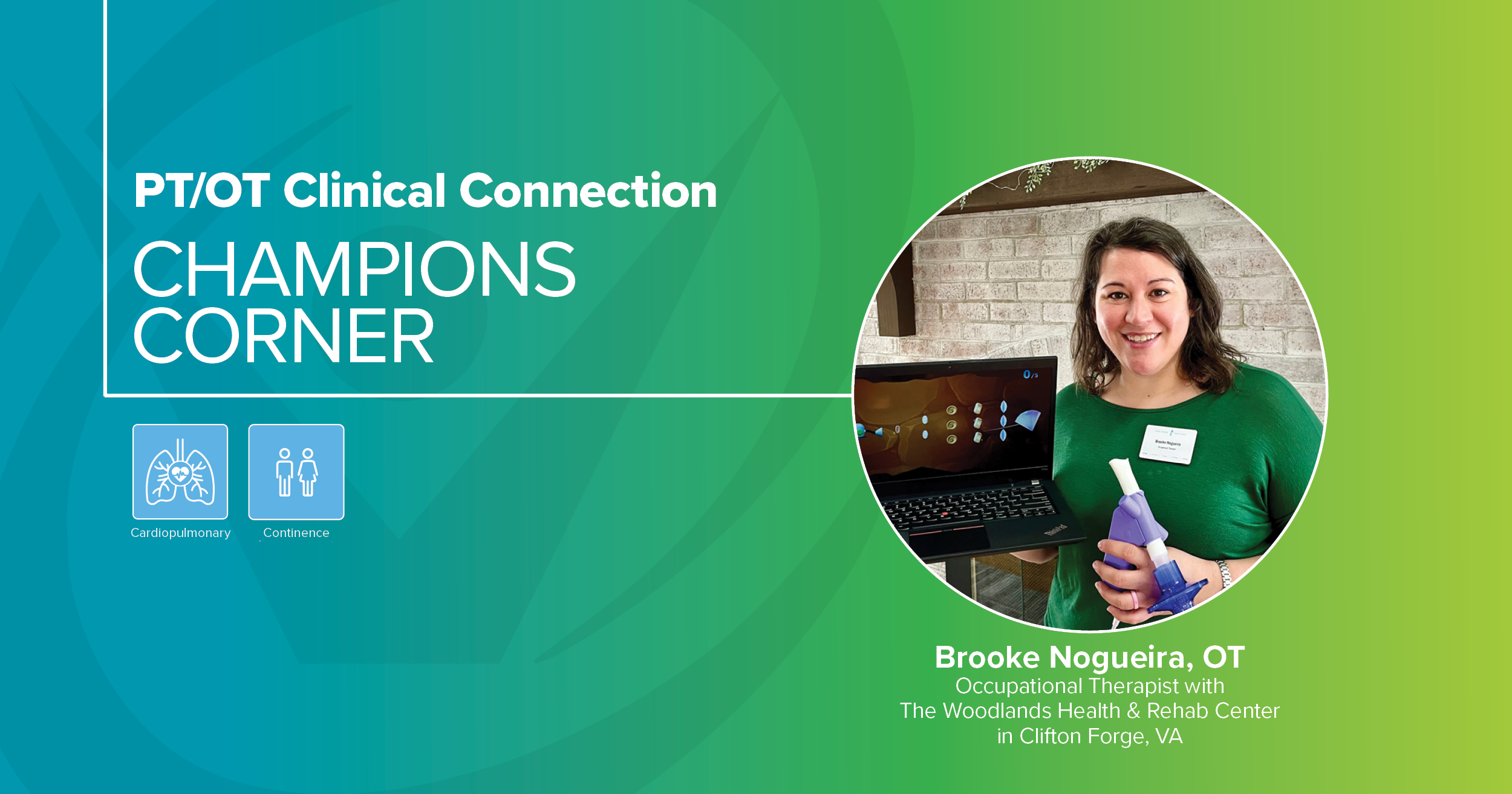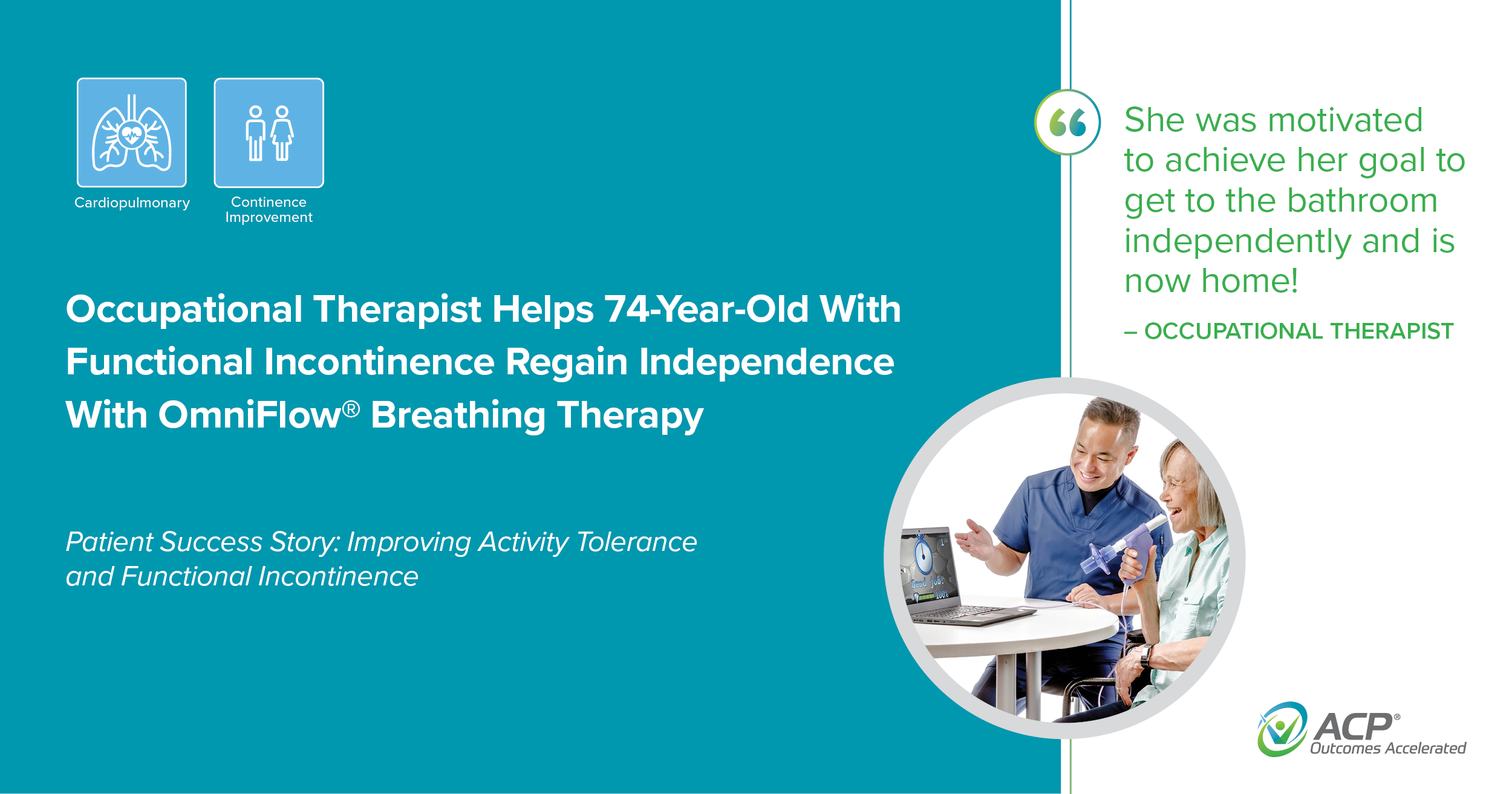Champions Corner
Improving Activity Tolerance and Functional Incontinence
This 74-year-old woman was referred to a skilled nursing facility for rehabilitation services with severe debility, decreased functional mobility, increased urinary frequency, and anxiety following hospitalization for acute cystitis (inflammation of the bladder). She has a long standing history of COPD and emphysema with requirement of oxygen supplementation of 4L/min. Prior to hospitalization, she lived independently. This woman’s goal is to be able to get to the bathroom on her own again.
Topics: Patient Success Story, Cardiopulmonary, Continence Improvement
Improving Urinary Incontinence Using Electrical Stimulation and Exercise
Patient Information: Female, Age 80
Diagnosis: Mixed Incontinence
History: This woman, an independent living resident with a 40-year history of incontinence, was referred to outpatient therapy due to increased incontinence episodes. She had mixed incontinence (impaired urge sensation and pelvic floor muscle weakness) resulting in decreased socialization. She was considering the use of a pessary (a insertable prosthetic device that may help with stress incontinence) and took medication for overactive bladder.
Improving Urinary Incontinence with Electrical Stimulation and Exercise
Patient Information: Female, Age 74
Diagnosis: Urinary Incontinence / Hip Fracture
History: This woman was admitted to a skilled nursing facility with significant decline in mobility
and function after an extended hospitalization due to a fall and subsequent fractured hip. Prior to her fall she lived at home with her family. Due to the severe decline in her function, she received rehabilitation services for one month prior to the continence program being added to her plan of care. Urinary incontinence had been an issue for years, but got significantly worse over the course of her hospitalization.
Improving Urge and Stress Incontinence with Continence Improvement Pelvic Muscle Exercise
Patient Information: Female, Age 72
Diagnosis: Urge and Stress Incontinence
History: This woman, an independent living resident, referred herself to therapy for incontinence rehabilitation after attending a facility open house where she learned of the program. She reported gradual decreased control of urine with both stress incontinence (inability to hold back urine leakage with increases in abdominal pressure caused by laughing and sneezing) and urge incontinence (inability to stop unexpected and urgent urine flow) over the past year.


